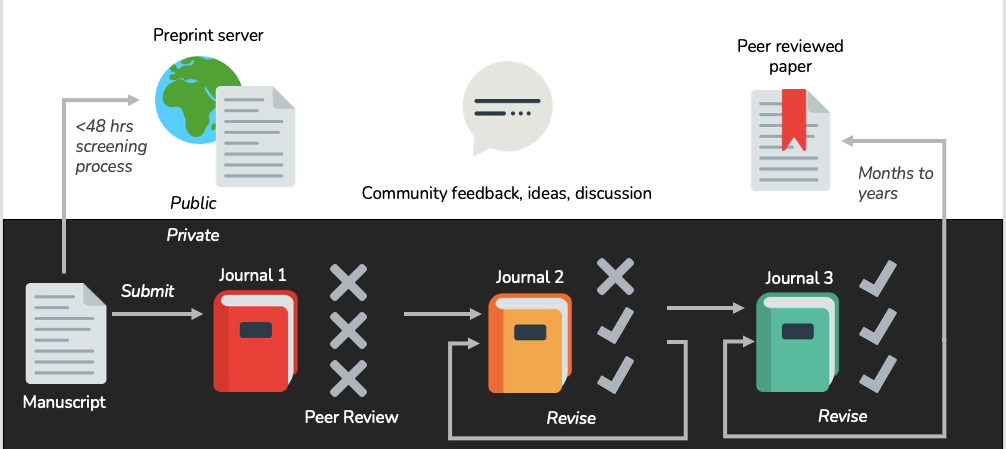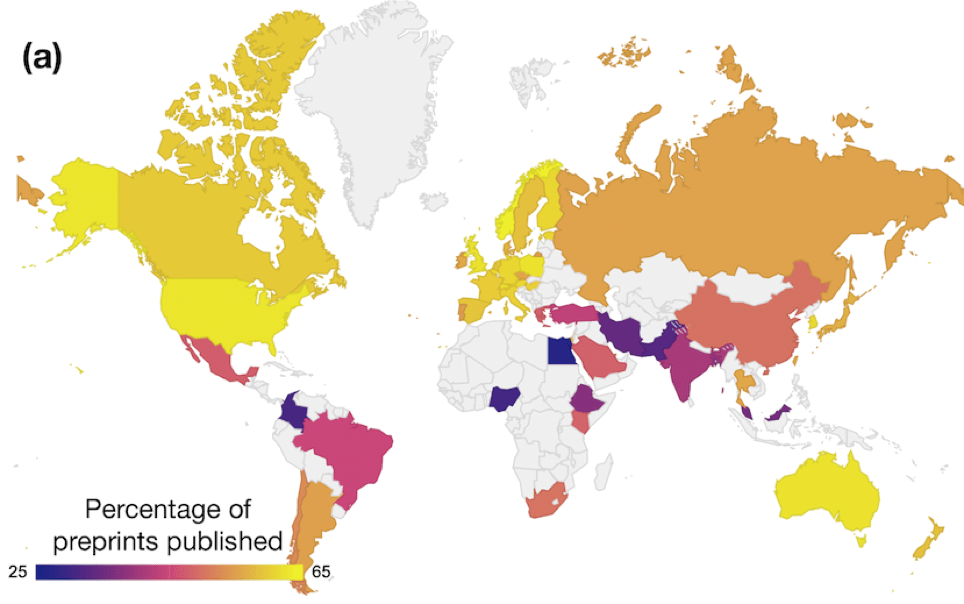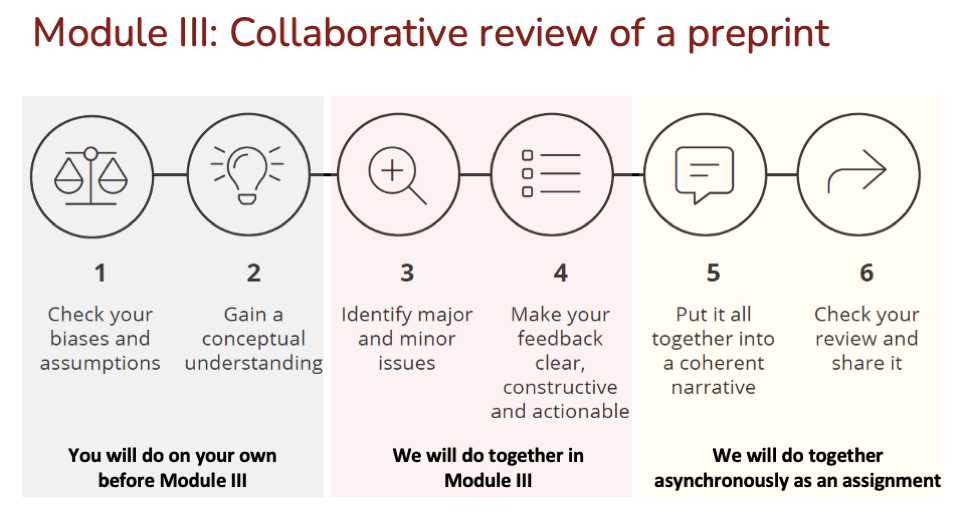Matthew Salter (Akabana Consulting) is amazed that arxiv is now in its 30 s. The first curated research-sharing platform open to anyone was founded in 1991. Peer review as we know it today is still pretty recent, but the innovations in publishing have already caused massive changes to this process.
At this year’s OASPA conference, the panel on preprints included a report by Jessica Polka (ASAPbio), who provided an overview of the preprint peer review process as it is currently conducted:
- Preprint servers conduct an automatic check to ensure the manuscript is scholarly work.
- The preprint is often the same copy of a manuscript submitted to a journal, while that paper might be going through a lengthy review process at one or more journals, it is already freely available to anyone in the world.
- The authors can upload new versions as their work progresses, and the community can provide feedback and commentary.
- Preprint feedback is highly diverse: ranging from freeform to journal-like (coordinated by an editor and part of a highly structured process).

?? Alongside enabling rapid dissemination, preprints also promote conversations.
Scholarly studies (meta-research) on peer review associated with preprints are only now starting to come to light and demonstrate the following:
??? Preprints enable new forms of peer review that have the potential to be more thorough, inclusive, and collegial.
?? Preprint review services have the potential to turn peer review into a more transparent and rewarding experience and to improve publishing and peer review workflows.
Adoption of preprints for the life sciences has been helped along by both private and public funders adopting policies to formally recognize them. This is especially relevant when considering that preprints are not solely the precursor to journal publication but also help in the emergence of more research from new sources.
In the opening session of this conference, Thanos Giannakopoulos (United Nations) focused on the latest Sustainable Development Goals global report that recognized that immediate and open access to scientific outputs and free access to scientific knowledge for all are consecrated on the Universal Declaration of Human Rights. Unfortunately, preprints from low-income countries are published as peer-reviewed papers at a lower rate than those from high-income countries, which once again shows global inequities in scientific publication (see below).

Partly to mitigate this, SciELO was born in Brazil. This program is implemented in a decentralized manner as a public policy to support open access scientific communication in 16 countries.
?? ?? ?? ?? ?? ?? ?? ?? ?? ?? ?? ?? ?? ?? ?? ??
Alex Mendonça (SciELO) highlights that the backbone of this project is multilingualism as inclusiveness. The posted preprints are mainly in Portuguese, Spanish, and English, but other languages are also accepted (including a preprint in Kichwa). SciELO also provides moderation of their preprints and collaborates with other organizations.
Therefore, alongside repositories that cater to specific research fields are those that congregate researchers from a particular country or language. Liu Jingyu (ChinaXiv) described how the popularization of preprints and open peer review is progressing in China. This initiative produced a metadata index so that several other repositories can share expertise.
Earlier in the conference, Peter Suber (Harvard) advocated that platforms that support open access need to be open source, as a central tenet of open science. This was well illustrated by Johanna Havemann (Access 2 Perspectives), who presented AfricArxiv.
AfricArxiv is a community-led digital archive for African research items (such as manuscripts, reports, datasets, code, illustrations, and presentations) that enables discoverability and collaboration opportunities for African scientists among themselves as well as globally. AfricArxiv is setting up a central repository to be hosted by UbuntuNet Alliance. Thus, it seems that local initiatives from the Global South have embraced preprint peer review as learning and teaching forums to help in capacity building.
A great example of this was described by Aurelia Munene (Eider Africa), who introduced the concept of localization. Eider Africa provides training and mentorship for early career researchers within the context of open access and preprint peer review, valuing local expertise. A successful partnership between AfricArxiv, Eider Africa, eLife, TCC Africa, and PREreview organized a pilot program to train African researchers in open peer review. This was divided into modules (see example below) and resulted in a set of freely available resources.

I would like to congratulate the organizers to follow a train-the-trainer model and provide input that is relevant and culturally adaptable. Training in peer review is not easy, as it encompasses training in self-reflection, study design, and effective communication through writing.
The difficulty in identifying suitable training materials may be compounded by barriers in access, comprehension, and lack of feedback. I have completed a couple of these courses and can honestly tell you that there is always more to learn, even after having completed more than 300 presubmission content reviews. Therefore, to help you all, here is my advice.
